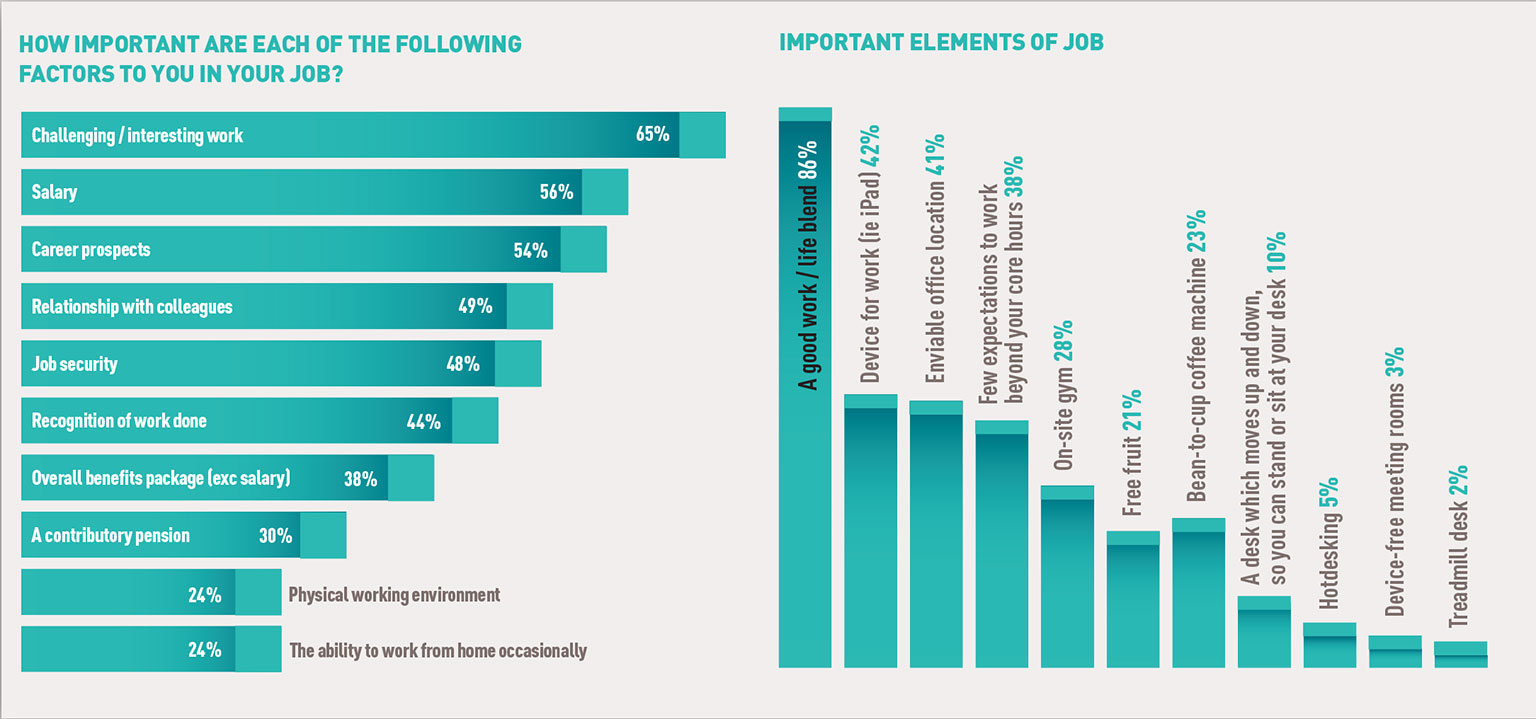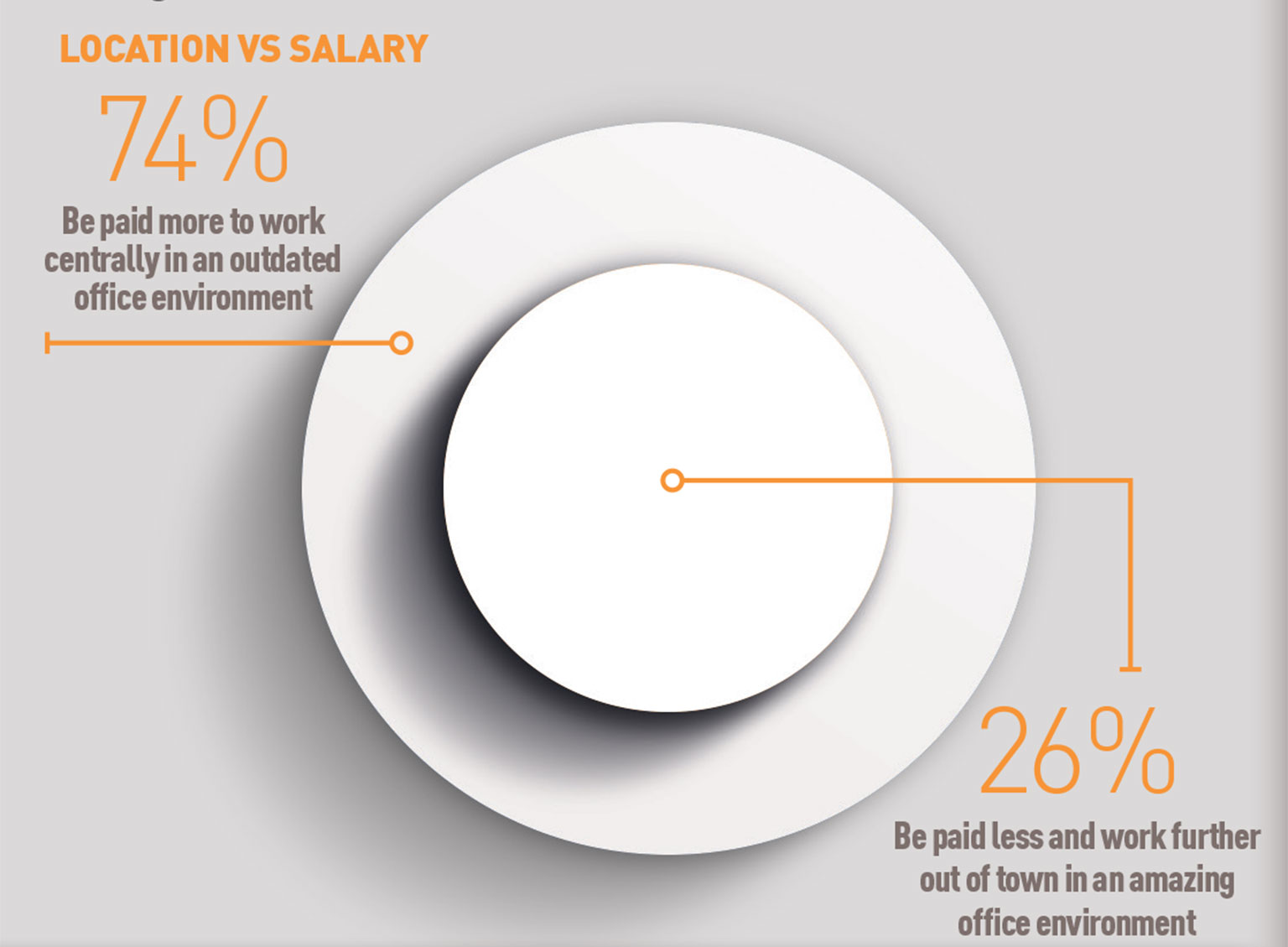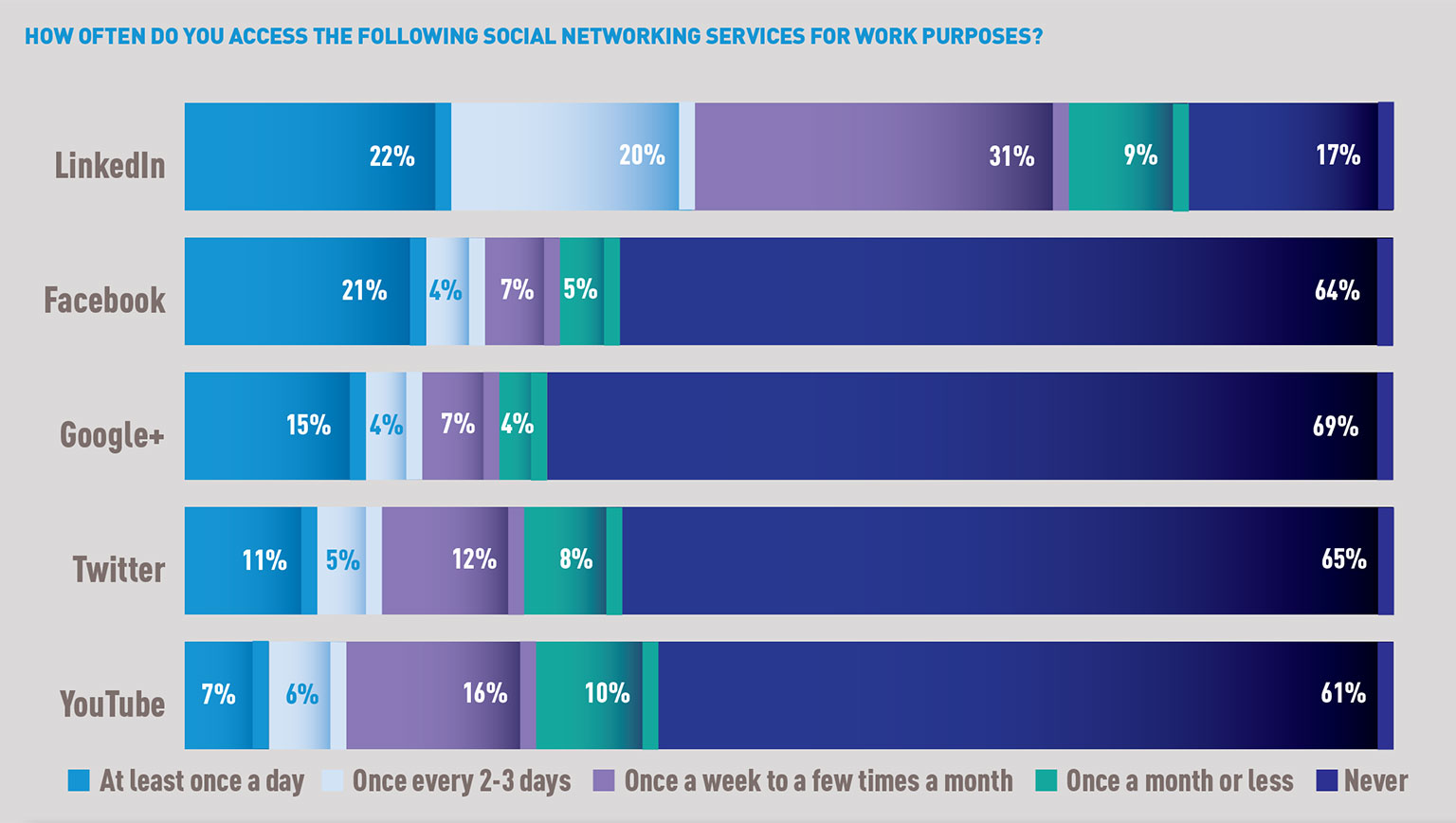
Benefits that click with employees
Salary did not just fail to top the list when respondents were asked to select the most important factor in their jobs. It trailed by nearly 10 percentage points on challenging and interesting work. Not only that, when it comes to reasons for moving jobs, a higher salary is only fourth on the checklist, behind better prospects, a fresh challenge and joining a company with a good reputation.
In a world where work is not just about the remuneration, office environment, design and added extras have never been more important for attracting and retaining staff. On-site gyms, bean-to-cup coffee machines and free fruit all made it onto the list of most popular nice-to-haves. But none came anywhere close to a decent work/life blend, which 86% of respondents voted as one of the most important elements of their working lives.
This was followed by a mobile device for work – which makes sense given the more flexible, fluid nature of modern working, and that 22% of people now use LinkedIn and 21% use Facebook at least once a day for work. Being online – and mobile – throughout the working day has never been more important, but these ticks in the box have not replaced financial rewards by any stretch of the imagination. Almost half of those surveyed expect a guaranteed bonus with any new job.

Central considerations
More than a quarter of people surveyed would take a pay cut and a location further outside a city centre for a great office environment. Should this come as a surprise? Not really. “Everyone is so mobile now,” says Simon Allford, founding partner of architect AHMM. “People can work anywhere, so central locations are not as important as they once were. But that does mean transport links need to be there. Creative quarters and business districts will emerge wherever there is infrastructure.”
Are we getting greedy?


Christopher Mackenzie, managing director, recruitment, Cobalt
 This year’s salary survey threw up some interesting revelations. For example, the three top reasons for joining an employer were listed as better prospects, a fresh challenge and a company with a good reputation. Moving for a higher salary was only fourth on the list. Similarly, the most important element of someone’s job has come out as “challenging and interesting work”, with salary trailing behind in second place.
This year’s salary survey threw up some interesting revelations. For example, the three top reasons for joining an employer were listed as better prospects, a fresh challenge and a company with a good reputation. Moving for a higher salary was only fourth on the list. Similarly, the most important element of someone’s job has come out as “challenging and interesting work”, with salary trailing behind in second place.
But does this all stack up in reality? My guess would be maybe not.
As recruitment consultants we have first-hand experience of what is going on when it comes to salary demands, particularly when people are in the process of moving jobs.
There is no doubt that the above factors are important for professionals considering career moves, but there are also a number of individuals taking advantage of the candidate skills shortage. In short, they are pushing their wage demands higher than they previously thought possible.
This understandably starts a vicious circle as employers need to keep up with demands for both hiring and retaining staff.
Another surprising figure from this survey was that 48% of people believe they would be due a guaranteed bonus when moving jobs.
From our experience, when reviewing the hires we helped to negotiate over the past 12 months, the actual figure was less than 15%. Are people getting greedy? Is this a sign of the top of the market?
The fact that 45% of respondents have not taken up a job they have been offered and instead stayed with their current employer could corroborate this point. This is possibly evidence of employees just being greedy and threatening to leave to enhance their packages.
But some responsibility for this must be laid at the door of employers. They will (usually rightly) think that in terms of both cost and loss of intellectual property, it is easier and more financially effective to offer large pay rises and promotions to potentially departing members of staff. But they may not benefit from this short-sighted approach.
It is well known that the occasional replacement of staff is a huge benefit as it brings in new talent, fresh ideas and an alternative way of doing something.
Equally, once someone has shown their desire to leave once, it is repeatedly proven that they do eventually make the move within the next 12 months.
Sometimes it is easier in the long run to accept a resignation and use it as an opportunity to improve a team.
A recent example we have been made aware of (but didn’t orchestrate) was someone being offered a 20% pay rise and a 40% guaranteed bonus (so they do happen sometimes) but when that individual resigned they were offered a staggering 50% pay rise to remain in their current role.
Unsurprisingly, that person chose to remain, but for how long?











